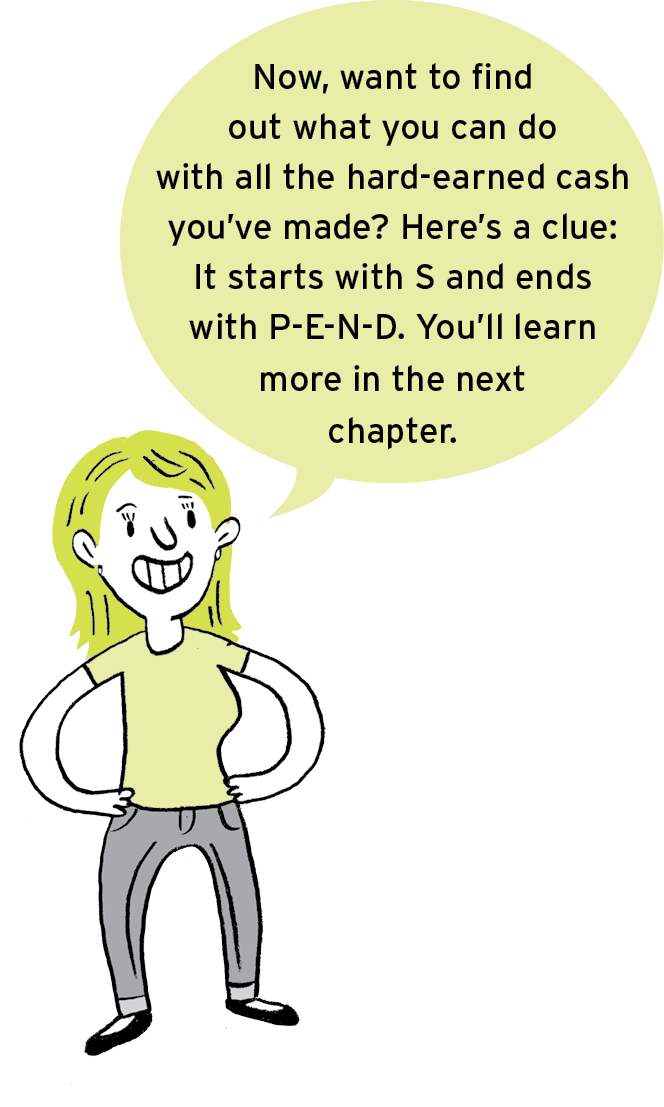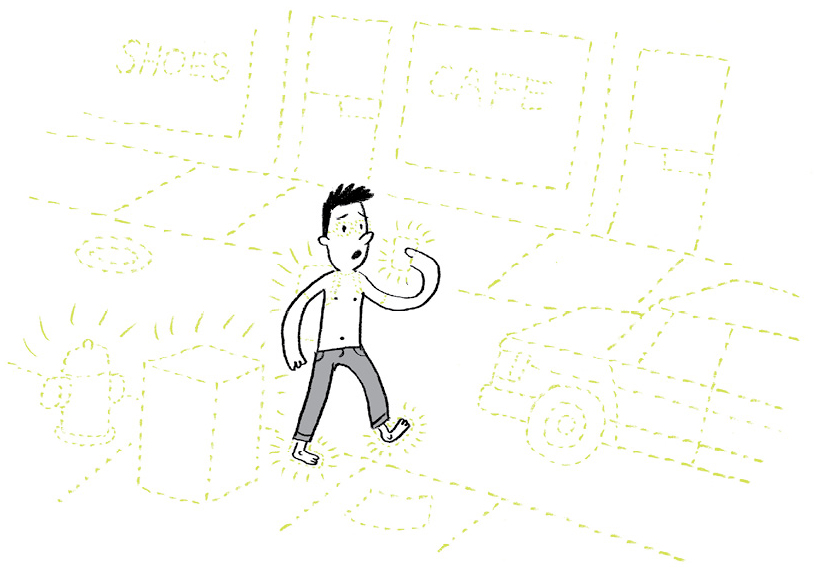

Stretch. Yaaaawn! Time to get out of bed and start the day. But what’s this? You have no bed, mattress, pillows, or even blankets on the floor. In fact, say good-bye to your breakfast plates, milk glasses, and the laptop you check in the morning to find out if it’s going to be a snow day. And your car and bike in the garage? Even they’ve disappeared, too.
Yep. You’ve just stepped into the No Entrepreneur Zone.

Think about all the people who ever said to themselves, “Hey, I think I’ll start a bed company,” or “A business that builds microwaves? Why don’t I give it a whirl?” Those people are entrepreneurs. Now imagine what our world would be like if they’d decided to give up on their dreams.
Well, what would happen if we lived in a world without entrepreneurs? Not only would our standard of living be a lot less than it is now (seriously, do you want to drink from the river with your cupped hands because no one makes tumblers?), but there would be hardly any jobs. And since entrepreneurs are the ones who take risks on exciting and innovative new businesses, there would also be a lot fewer interesting new jobs.
But before you go around thinking that entrepreneurs are just bigwig moneybags who can afford to start up any business they like, think again. In fact, most entrepreneurs are a lot more modest (and younger) than you might guess. An example…?
That would be Cameron Herold, founder of Backpocket COO, a company in Vancouver, Canada, that helps other entrepreneurs learn how to make a buck. Cameron, to put it mildly, is pretty passionate about people who own businesses. And he believes that lots of kids should think about running their own, too. Not tomorrow, but today.
“You don’t have to have a boss. You can be the boss. If you like to be in charge, if you like to lead, if you like to march to your own drum and do what you want, then do it! Then get other people to follow you.”
— Cameron
“Every single company out there—every business, every restaurant, every gas station—one person started it. Someone like you said, ‘I want to start this company.’ Why not you?” he says.
He should know. Cameron’s been cooking up moneymaking schemes since he was just seven. That’s the year he started roaming the neighborhood collecting people’s unwanted coat hangers and selling them back to the dry cleaner for two cents apiece. Soon he’d collected thousands of them.
Not only did Cameron make some money, but the dry cleaner got what he wanted, too: coat hangers. Everyone was a winner.
“I’d tell my mom I was going out to play—then I’d just go door to door on another street,” says Cameron.
That little coat hanger business was just the beginning. By the time Cameron hit high school, he’d found all kinds of ways to make money without getting a real job. He…
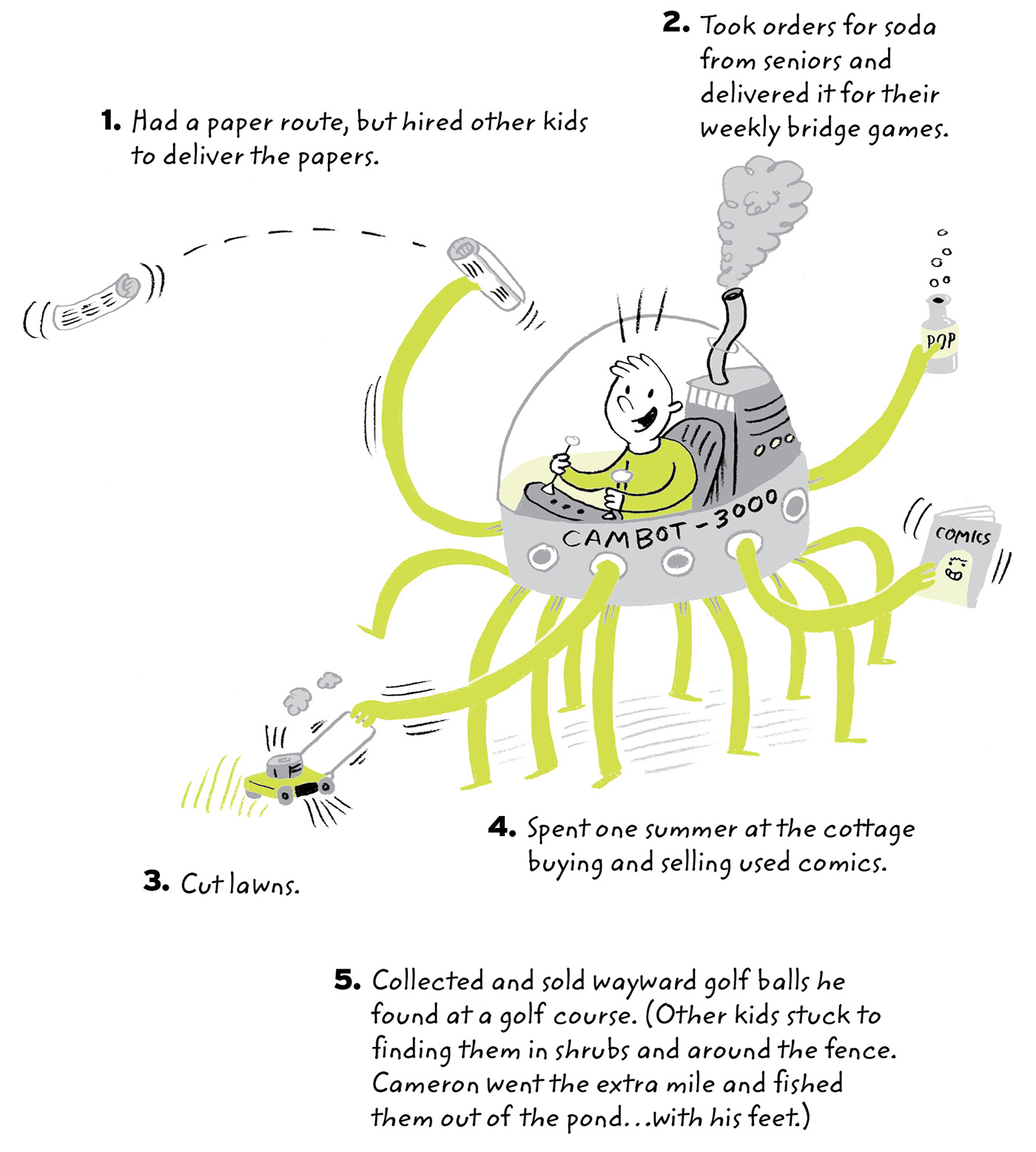
Cameron’s the first to admit he struggled in school (he’s since been diagnosed with ADHD) and remembers teachers telling him he had to focus. Instead, he doodled and dreamed up new business ideas. Now looking back, Cameron says a lot of the following traits have actually helped him be successful today. He:
A lot of great entrepreneurs are the first to admit that luck—that’s right, LUCK—has a lot to do with their success. It’s about being in the right place at the right time.
It can. But according to one British study, money only truly makes us happy if it makes us feel richer than our neighbors or friends. For example, imagine your teacher is handing tests back and you see you’ve pulled off an A+. Pretty good! But what would happen if you found out everybody in the class got an A+, too? Suddenly, that awesome mark doesn’t make you feel quite as happy.
Now, psychologists (people who use research to tackle real-world problems) have long noted that money does make us happier if it lifts us out of poverty. That makes sense. No one wants to be poor. But if you’re part of the middle class (enough money to pay for food, housing, and extras, but not considered rich) it seems you’ve got to have more than someone else to feel good, claims Chris Boyce, the lead researcher from the University of Warwick.
“Earning a million pounds a year appears to be not enough to make you happy if you know your friends all earn 2 million a year,” he said.
Just ask the telephone research guys back in the 1970s who tried to convince us to use their newfangled Picturephone. In other words, you could see the person you were talking to on the phone over a television-like set. Only one problem: No one wanted to yakety-yak in their housecoat or while unshaven in the morning. They just weren’t ready for it yet. But now? A lot of us think nothing of pressing a button on our smartphones or other techie devices and getting that face-to-face time with friends and family. Same idea, but right place, right time. (And better picture quality, too.)
Still, all the great ideas, confident planning, and even good luck doesn’t change the fact that at the heart of every successful new business lies one thing: hard work, and lots of it.
Work, schmerk, you say? Even the thought of running your own business doesn’t excite you? Instead, you dream about winning the lottery or stumbling on some other get-rich-quick scheme? Well, keep dreaming. Money for nothing is often nothing more than a great big hill of trouble. Hop on to these so-called free rides and have a look for yourself. Just remember to hold on tight…it gets a bit bumpy.
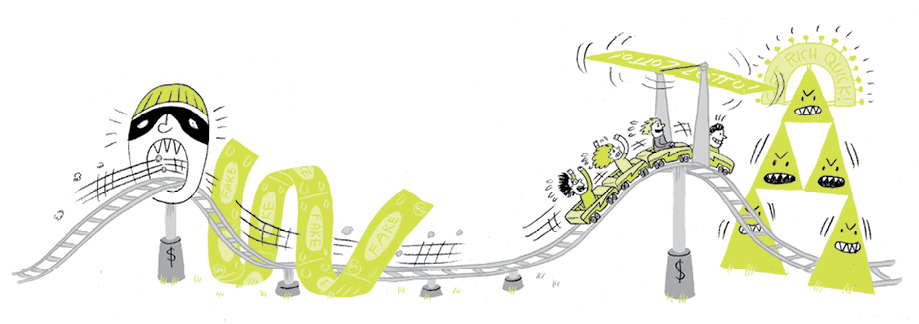
It’s reported that a thief in California was once arrested for trying to hold up a bank branch without a weapon. He used a thumb and a finger to imitate a gun, but unfortunately he forgot to keep his hand in his pocket. The police eventually found him sitting in the shrubs outside the bank and arrested him. No bang…and no bucks.
A group of robbers who stole a cash machine in Australia watched their haul catch fire after they dragged the machine out of the building with a truck and a chain. They sped away with it dragging behind, but the friction caused the machine and the money inside to catch fire. Bet they’re burning with shame now.
A woman who tried to use a fake $1 million bill to buy $1,675 worth of merchandise at Walmart told police it was all just a misunderstanding. Turns out the wonky bill was a gag gift. (The United States Treasury doesn’t make $1 million bills, just so you know.)
If you suspect you’ve got a fake bill in your pocket, take it to the police. Don’t try to pass it along to someone else and make it their problem. That’s a crime. The Criminal Code of Canada, for example, states that anyone caught making, possessing, or passing counterfeit money could receive a prison term of up to 14 years!
Sure you are. Even if you’re feeling lucky, the odds of you winning the lottery are next to nil. In fact, you’re more likely to be struck by lightning than win the big one. Want proof? A lottery that asks you to pick seven numbers between one and 69 gives you a one in 1,078,897,248 chance of winning. (Yes, that’s over a billion to one.) By way of comparison, someone eating an oyster has the relatively sunny odds of one in 12,000 of finding a pearl nestled inside. So set aside that ticket-buying money and save it instead.
Yes, spending more money on more tickets will up your chances. If you buy two tickets, you’re twice as likely to win, right? Absolutely. But here’s the catch: If the chances of winning are one in 1,265,756,641, buying a second ticket will give you only a two in 1,265,756,641 chance. Not exactly stellar odds.
Instead of fighting invading Vikings, some English kings of old preferred to pay up instead. These payments were called Danegeld (meaning “Dane debt”). Becoming used to the steady flow of cash, the Vikings imposed a similar tax in Ireland—and slit the noses of anyone who wouldn’t or couldn’t pay. Now you know where the phrase “paying through the nose” (paying too much for something) comes from.
Who would have guessed that there’s such a thing as a “puppy scam” (classified ads that target dog lovers)? Or a “bomb threat scam” (the victim receives an e-mail saying that a bomb has been planted and if she doesn’t want it to go off in the building, she has to wire money immediately)? In 2010, the Canadian Anti-Fraud Centre reported that in one month alone, Canadians lost $3.5 million to fraudsters.
Just kidding…your allowance is okay. Spend it, save it, do what you want with it. Knock yourself out.
Teang Tang
Mingle Event Management, Canada
From the time she was about eight or nine years old, Teang Tang knew she was going to run her own business one day.

“I was the kind of kid who wanted to set up a lemonade stand all the time,” says Teang, now in her twenties and living in Calgary, Alberta. “Being an entrepreneur has always been in my blood.”
Today, Teang owns and operates Mingle Event Management, a company that helps plan special events for businesses, and even weddings and birthday parties. But here’s the thing—she likes to plan events that are eco-friendly. Sometimes that means setting up hybrid taxis for people to take home or hiring a chef for a wedding who serves only organic food grown by a local farmer. The idea is catching on. Teang has over 800 customers and hires up to 70 people to pull off the work.
Even more amazingly, Teang built the business while going to university full time! Although she admits things can get busy for her, she’s still very happy she’s her own boss.
“The nice thing about running your own business is that when you get bored of something, you can just turn around and try something else that looks fun!” she says.
She admits that over the years some people told her she was too young to build a company (she also ran a dress-making business in high school), but she never let her age hold her back. And she says you shouldn’t either.
“If you conduct yourself properly and act professionally, it doesn’t matter how old you are. You can do this, too!” says Teang.
No, that doesn’t mean simply dreaming up cool ideas for making candy-coated grasshoppers. (Because, really, are there ever enough flavors to keep everybody happy?) A real business starts with a real business plan. That means writing out your ideas on paper and including things like:
For a lot of people, planning is tons of fun, but that’s all they do, says Teang. If after you write the business plan, you still think it’s a good idea, find a mentor (someone who already runs a business and can offer advice) and take the leap! “It’s scary, but be radical. Try something no one else has tried before.”
That’s right. Explore. Experiment. Mess up…then learn from your mistakes. That’s how a lot of businesspeople eventually find their winning formula (although not everyone will admit it). “Because nothing is failure. If you tried something new, hopefully you’ll have learned a lesson and will just try something different the next time around,” says Teang.
Still wish you could win the lottery? Well, in a way you already have—the birthday lottery! By coming into this world after 1995, about the time when the Internet ka-boomed across the nation, you were born at a really excellent time in history—especially if you want to be your own boss, make your own money, and start your own company. And here’s why: It’s a lot (and I mean a lot) cheaper to start many different types of businesses today than it was 20 years ago. We have technology to thank.
Imagine you wanted to start your own yearbook business. You talked to your friends, found out none of the middle schools in your town published yearbooks, and decided people would pay for them (for no other reason than to feed the need to see that great shot of Erica blowing spaghetti out of her nose at lunch).
True story. Not long after I researched counterfeit money for this book, I walked into my local pet store to buy food for my family’s hungry guinea pigs. But as soon as I slapped down three $5 bills to pay for it, the eagle-eyed cashier spotted trouble.
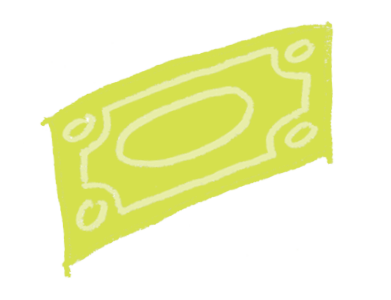
“Uh-oh. There’s another one,” she said.
It turned out that one of my bills was fake—and I’d had no idea! To be fair, the store manager told me it was one of the most realistic forgeries she’d seen in a while. If felt just like real money, and other than the fact that it was missing a metallic stripe and ghost image embedded in the paper (two of the many security features Canadian bills use), the counterfeit fiver was convincing. Still, I was embarrassed I’d missed the telltale signs.
Wondering what you should look out for, too? Visit your country’s national bank website to get the lowdown on bogus bills.
Creating a yearbook took a lot of time, work, and money. You needed cameras to shoot the images and money to develop the photos. If you wanted to advertise your business, you’d have to spend cash on posters or buy newspaper ads. You’d have to find space for all the volunteers or staff you’d need to keep the project hopping. You also had to literally cut and paste the photos and place them on pages to be sent to a printer, which, by the way, charged a mint. In other words, if you wanted to start your own yearbook company, you needed a lot of capital (fancy-speak for start-up money) to launch it and keep it going.
It’s easy enough to grab free, or nearly free, design and layout software online. Digital cameras are generally inexpensive, and there’s no developing cost. Your whole office can consist of a desk, a chair, and a computer. As long as a grown-up is kept in the loop, you can use social media sites to spread the word and advertise the service for free. Meanwhile, your website can impress clients. And printing? It’s all about print-on-demand, baby. Customers order and pay for the number of books they want, and once you have the money, you print only the ones you’ve sold. Maybe you decide to avoid printing altogether and post the whole kit-and-caboodle online instead to create a virtual book.
The point is that starting a business today is a lot more doable than ever before. So if you’ve got a fab idea and like running the show but are worried about jumping in, just remember…the most important thing is to give it a try.
